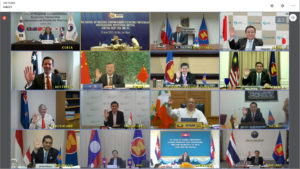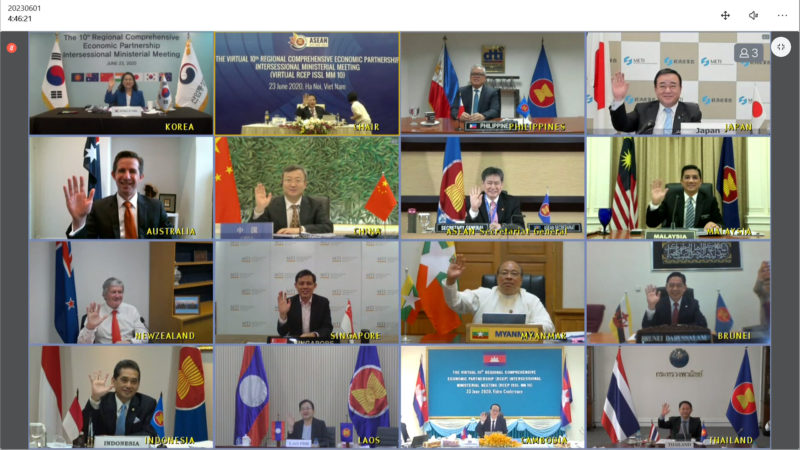
Trade ministers of the Association of South East Asian Nations (ASEAN) and free trade agreement (FTA) partners Australia, China, Japan, Korea, and New Zealand have reaffirmed the signing of the Regional Comprehensive Economic Partnership (RCEP) Agreement by November 2020.
The trade ministers made the commitment during the 10th RCEP Intersessional Ministerial Meeting conducted through video conference on June 23, according to the Department of Trade and Industry (DTI).
The trade department noted that the conclusion of the RCEP Agreement gains more importance now as there is a need to strengthen and enhance economic cooperation in the region, as well as to mitigate disruptions and usher in post-recovery plans for the coronavirus disease (COVID-19) pandemic.
“Together, let us send a strong signal that we continue to deepen our economic partnership despite the challenges and uncertainties in the global trade environment. RCEP remains crucial in restoring business confidence and maintaining a positive outlook in the region.” Trade Secretary Ramon Lopez said.
The trade ministers have also recognized India’s important role in progressing the region’s economic integration efforts and said they would welcome the country back in RCEP.
It may be recalled that during the 3rd RCEP Summit in November of last year, Indian Prime Minister Narendra Modi announced the country’s withdrawal from the RCEP free trade deal, stating that the current version of the Agreement does not satisfactorily address the concerns of India.
Noting the progress of the negotiation, Lopez emphasized that the Philippines stands ready to engage with all RCEP participating countries in resolving remaining issues in a mutually satisfactory way to finalize the agreement for signing.
Once entered into force, the regional pact is poised to be the world’s largest trade deal by population and gross domestic product. The RCEP Agreement is expected to boost the economic environment in the region through enhanced market access for goods as well as services, and by providing stability and predictability on trade rules and regulations.
DTI noted the trade pact will provide a wider platform to source materials and export products at a preferential rate in bigger markets while at the same time encourage investments in manufacturing, energy, and technology-based industries. Philippine exports to RCEP members are also expected to expand in sectors such as construction, transport, and machinery equipment, among others.
In an earlier pronouncement, Lopez emphasized that the Philippines, with its strategic location in the region, can also serve as a vital link to various economies in the world, from East to West, from the northern and southern Americas, and into the Asian countries and vice versa





